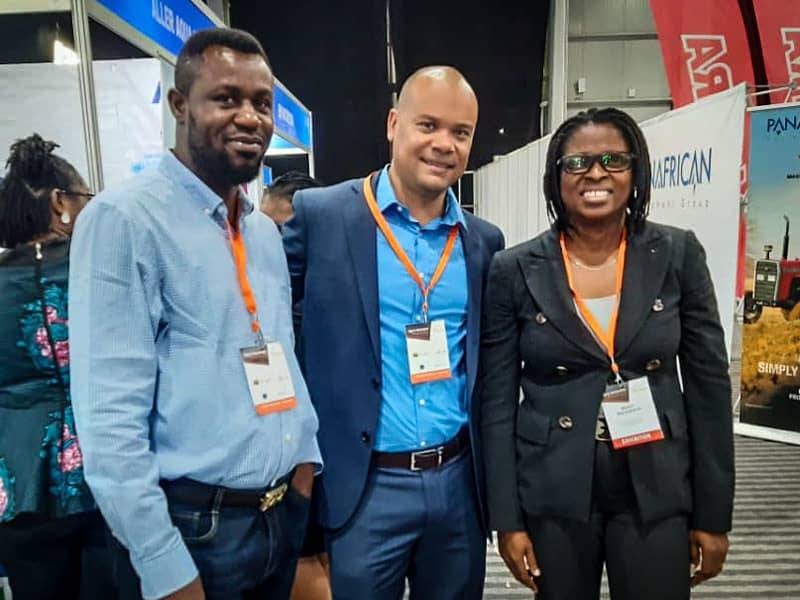LAGOS, Nigeria – A new regional trade and investment hub funded by USAID expects to generate 40,000 new, better paying jobs in agriculture and other key business networks in West Africa during the next five years, the head of the project said during a major trade conference.
Speaking during a Nov. 26 panel session at the Agra Innovate trade show, Michael Clements, who leads the West Africa Trade and Investment Hub in Abuja, explained that the project will provide financial support and technical assistance to innovative and results-focused companies working in strategic sectors, including agriculture, apparel, services and energy.
“The Trade Hub is a public-private partnership that is a both a financial backer and catalyst for West Africa’s growth,” Clements said during a panel session called “Finance as a catalyst for the development of the food supply chain in Nigeria.”

The panel session was moderated by Nneka Eze, country director for Trade Hub partner Dalberg.
The Trade Hub is funded by the U.S. Agency for International Development and is an activity of Feed the Future. It is implemented by Creative Associates International. During five years, it will leverage partnerships with the private sector to expand business operations, increase productivity, strengthen competitiveness, and create jobs that will build on the talents and aspirations of West Africa’s growing youth population. Based in Abuja, Nigeria, the Trade Hub will reach Senegal, Côte d’Ivoire, Burkina Faso, Niger, and other West African countries.
The Trade Hub’s exhibit at the Agra Innovate trade show allowed agricultural entities and other private sector leaders to have one-on-one time with the project’s experts and leadership.
“Sponsoring and participating in the Agra Innovate event was an excellent opportunity to make inroads with the West African agricultural sector, which will be at the center of the Trade Hub’s work to foster sustainable and inclusive economic growth in the region,” Clements said.
Focus on women and youth
The Trade Hub’s activities will promote inclusive economic growth, creating opportunities for West African women and youth to raise their household incomes, gain new skills and start and grow small businesses as potential and active grantees. The project will also leverage other private entities interested in investing in youth or women to co-create sustainable initiatives for long-term youth and women’s employment.
USAID Trade Hubs across the continent have been instrumental in promoting regional economic integration and securing investment for many of Africa’s nascent and growing industries. To date, the Trade Hubs have generated some $600 million in investment, and that number continues to grow. They are a cornerstone of the U.S. African Growth and Opportunity Act and key catalysts for U.S.-African trade. This new iteration of the Trade Hub in West Africa aims to generate an additional $300 million in investment.
Reporting by Blessing Lass in Abuja and Karl Littlejohn in Lagos